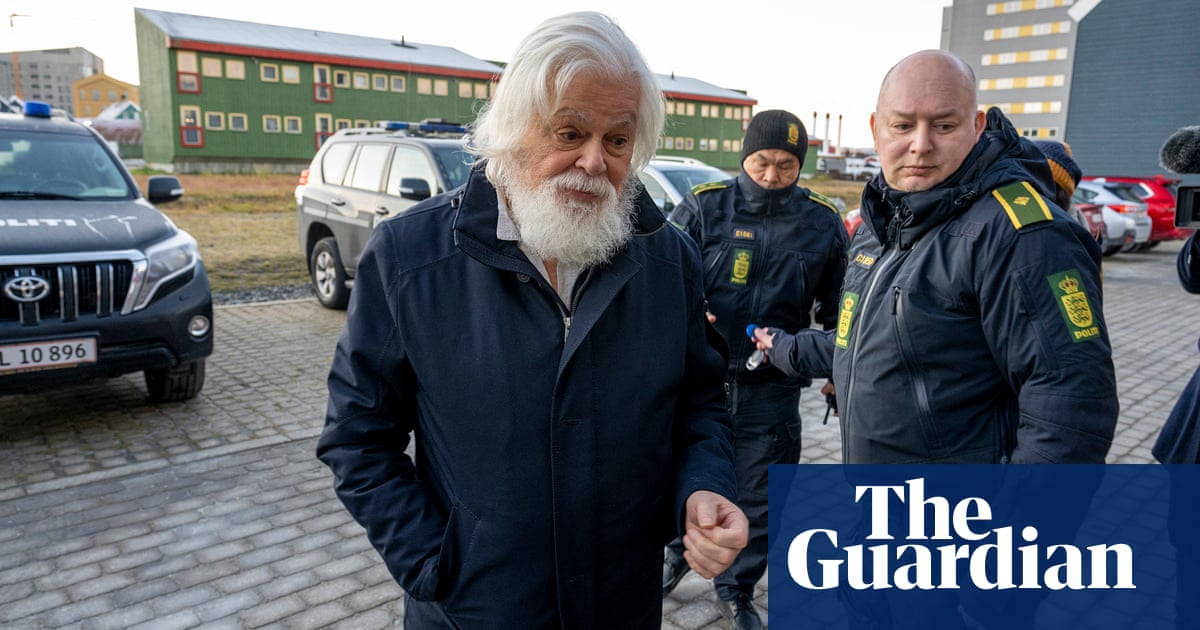Anti-whaling activist held in Greenland appeals for political asylum in France | Whaling

Paul Watson, the anti-whaling activist detained in Greenland and awaiting possible extradition to Japan, has appealed to Emmanuel Macron for political asylum in France.
Watson was detained in July after a Japanese request to Interpol over his confrontational tactics aimed at disrupting whaling operations in the Antarctic, and could face up to 15 years in prison if he is extradited and convicted.
His request to the French president was made in a letter several days ago, said Lamya Essemlali, the head of Sea Shepherd France, at a press conference in Paris. Macron has previously expressed his support for Watson and emphasised the importance of the case for environmental advocacy and human rights. There was no immediate comment from Macron’s office on Wednesday.
Essemlali said: “Paul is very attached to France, and it is also the second largest marine territory in the world, which means a lot for ocean conservation. Paul is currently living in France with his family.” She said Watson was “down” and “isolated” but “resilient”.
Jean Tamalet, a lawyer associated with Sea Shepherd France, part of the US-based non-profit conservation activist organisation, emphasised that the call for political asylum was largely symbolic and aimed at securing Watson’s release.
Critics of Watson’s arrest in Greenland have asserted that it stemmed from longstanding political motivations tied to Japan’s whaling practices, which are banned internationally under a 1986 treaty. Japan considers the practices part of its cultural heritage.
For decades, Watson has led high-profile confrontations with whaling ships in the Southern Ocean. The Greenland arrest occurred when Watson’s ship docked in Nuuk for refuelling on its way to intercept a Japanese whaling ship. Danish authorities are reviewing Japan’s request for his extradition.
More than a decade ago, Japan issued a red notice through Interpol. This is not an international arrest warrant but a request for cooperation between member states to locate and detain individuals pending extradition.
In the past, international authorities had paid little attention to the red notice, allowing Watson to travel freely, according to Tamalet, who said: “That has obviously changed.”
Source link




